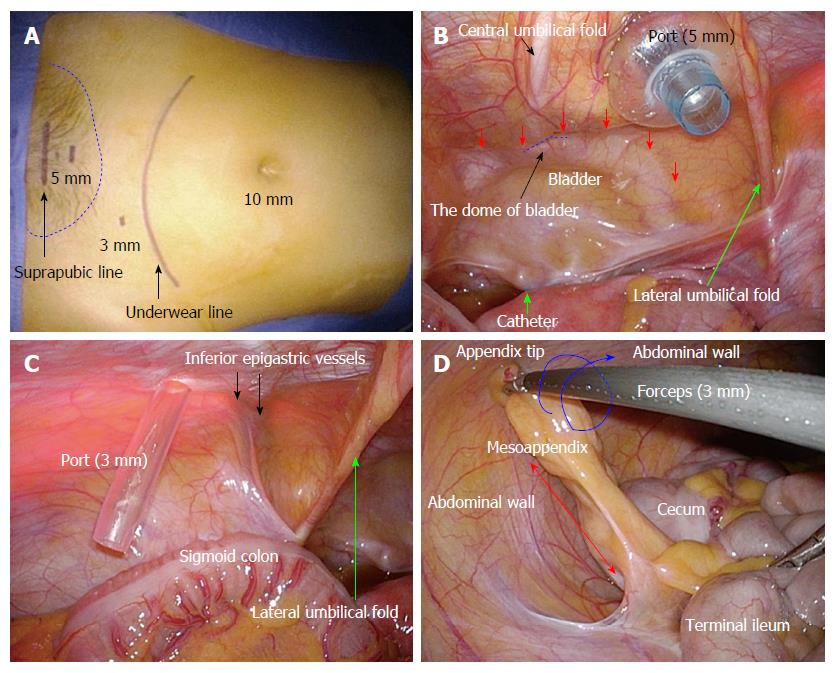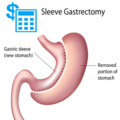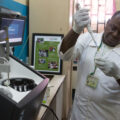According to a study published in the Journal of Clinical Sciences, the annual incidence of appendicitis in Nigeria is 22.1–49.8 new cases per 100,000. The lifetime risk of acute appendicitis in developed countries is about 6.7% for females and 8.6% for males.
However, the lifetime chances of undergoing appendicectomy are much higher, i.e., 9.89% for males and 9.61% for females.
What Is an Appendectomy?
An appendectomy is the surgical removal of the appendix. It’s a common emergency surgery that’s performed to treat appendicitis, an inflammatory condition of the appendix. The appendix is a small, tube-shaped pouch attached to your large intestine. It’s located in the lower right side of your abdomen. The exact purpose of the appendix isn’t known. However, it’s believed that it may help us recover from diarrhea, inflammation, and infections of the small and large intestines. These may sound like important functions, but the body can still function properly without an appendix. When the appendix becomes inflamed and swollen, bacteria can quickly multiply inside the organ and lead to the formation of pus. This buildup of bacteria and pus can cause pain around the belly button that spreads to the lower right section of the abdomen. Walking or coughing can make the pain worse. You may also experience nausea, vomiting, and diarrhea.
It’s important to seek treatment right away if you’re having symptoms of appendicitis. When the condition goes untreated, the appendix can burst (perforated appendix) and release bacteria and other harmful substances into the abdominal cavity. This can be life-threatening, and will lead to a longer hospital stay. Appendectomy is the standard treatment for appendicitis. It’s crucial to remove the appendix right away, before the appendix can rupture. Once an appendectomy is performed, most people recover quickly and without complications.
Why Is an Appendectomy Performed?
An appendectomy is often done to remove the appendix when an infection has made it inflamed and swollen. This condition is known as appendicitis. The infection may occur when the opening of the appendix becomes clogged with bacteria and stool. This causes your appendix to become swollen and inflamed. The easiest and quickest way to treat appendicitis is to remove the appendix. Your appendix could burst if appendicitis isn’t treated immediately and effectively. If the appendix ruptures, the bacteria and fecal particles within the organ can spread into your abdomen. This may lead to a serious infection called peritonitis. You can also develop an abscess if your appendix ruptures. Both are life-threatening situations that require immediate surgery.
Symptoms of appendicitis include:
stomach pain that starts suddenly near the belly button and spreads to the lower right side of the abdomen
- abdominal swelling
- rigid abdominal muscles
- constipation or diarrhea
- nausea
- vomiting
- loss of appetite
- low-grade fever
Although pain from appendicitis typically occurs in the lower right side of the abdomen, pregnant women may have pain in the upper right side of the abdomen. This is because the appendix is higher during pregnancy. Go to the emergency room immediately if you believe you have appendicitis. An appendectomy needs to be performed right away to prevent complications.
What Are the Risks of an Appendectomy?
An appendectomy is a fairly simple and common procedure. However, there are some risks associated with the surgery, including:
- bleeding
- infection
- injury to nearby organs
- blocked bowels
It’s important to note that the risks of an appendectomy are much less severe than the risks associated with untreated appendicitis. An appendectomy needs to be done immediately to prevent abscesses and peritonitis from developing. SEE: How Much Does It Cost To Donate Blood In Nigeria
How Do I Prepare for an Appendectomy?
You’ll need to avoid eating and drinking for at least eight hours before the appendectomy. It’s also important to tell your doctor about any prescription or over-the-counter medications you’re taking. Your doctor will tell you how they should be used before and after the procedure.
You should also tell your doctor if you:
- are pregnant or believe you may be pregnant
- are allergic or sensitive to latex or certain medications, such as anesthesia
- have a history of bleeding disorders
You should also arrange for a family member or friend to drive you home after the procedure. An appendectomy is often performed using general anesthesia, which can make you drowsy and unable to drive for several hours after surgery. Once you’re at the hospital, your doctor will ask you about your medical history and perform a physical examination. During the exam, your doctor will gently push against your abdomen to pinpoint the source of your abdominal pain. Your doctor may order blood tests and imaging tests if appendicitis is caught early. However, these tests may not be performed if your doctor believes an emergency appendectomy is necessary.
Before the appendectomy, you’ll be hooked up to an IV so you can receive fluids and medication. You’ll likely be put under general anesthesia, which means you’ll be asleep during surgery. In some cases, you’ll be given local anesthesia instead. A local anesthetic numbs the area, so even though you’ll be awake during the surgery, you won’t feel any pain.
How Much Does An Appendix Surgery Cost In Nigeria?
Appendicitis can hit you at any time. You could be at work, asleep at home, on vacation – pretty much anywhere. The pain can be sudden and often memorable. You’ll talk about it in years to come. But first, you’re going to need to see a doctor and you’re probably going to need surgery.
It’s not that the appendix is important. It isn’t. It’s an evolutionary leftover suited to the less-refined diets of our caveman forebears. But if it ruptures without proper treatment, it can spread life-threatening bacteria into your abdomen, That’s why most doctors will want to open you up and take it out.
An appendectomy is one of the commonly performed surgery in Nigeria and most appendectomies have little to no complications. For most government hospitals which charge between =N= 60,000 – =N=120,000 that cost will hover around.
In Nigeria if you are enrolled in the National Health Insurance Scheme, all you have to pay is 10% of the total cost of surgery and medicines. For most government hospitals which charge between =N= 60,000 to =N=120,000 for Laparoscopic appendectomy that cost will hover around =N= 10,000 –N =N=12,000 naira excluding blood, transfusion and medications. READ: The 10 Advantages Of National Health Insurance Scheme
However, the cost of Laparoscopic appendectomy in private hospitals is much higher and especially so in big cities where the cost can be as much as =N=500,000 depending of the ward the patient is admitted into. In many state owned hospitals in Northern Nigeria, emergency procedures like appendectomy are carried out free of charge. SEE: Gastric Sleeve Cost and Success Rate






